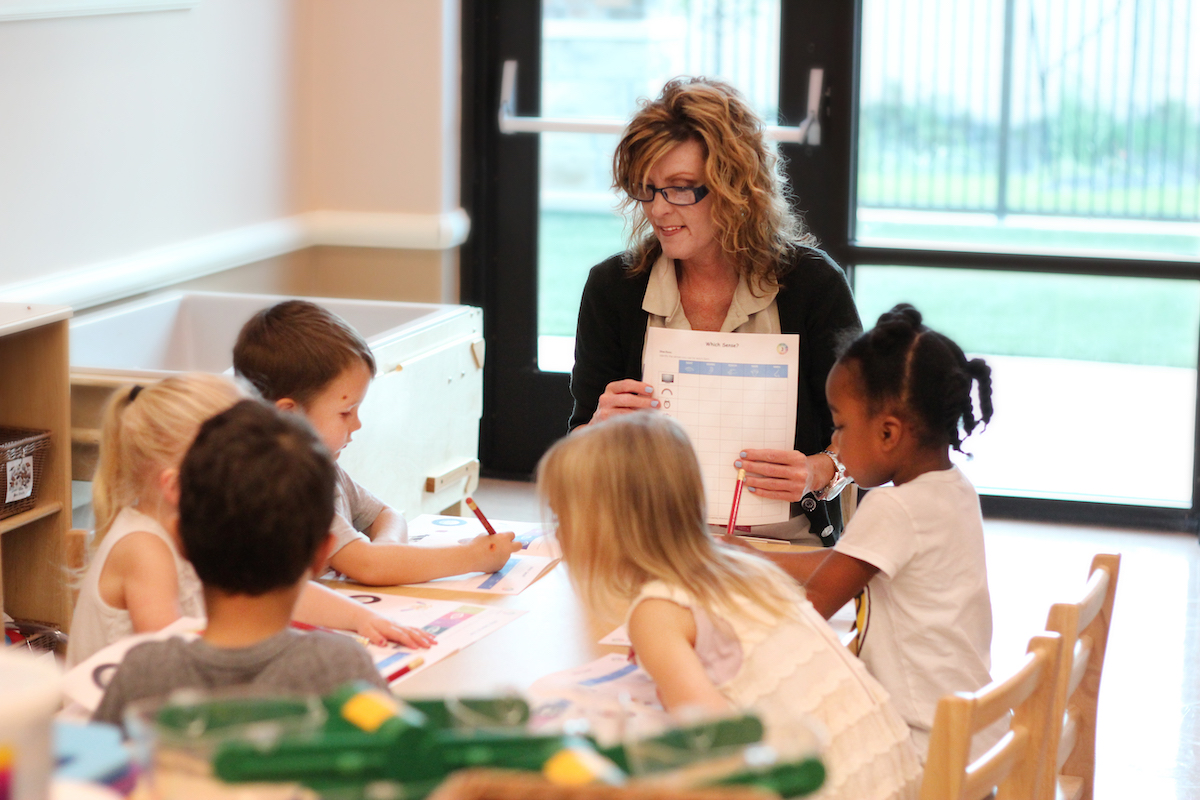Children's Learning Adventure
Feb 24, 2020
It’s here! Your Child’s First Day of School
Getting Your Child Ready for Kindergarten
The first day of school can be an exciting time. It can also be stressful and frightening for some children (and their parents). Will they make friends? Do they have the skills they need? What if they need me? Although daycare and preschool are great ways to prepare a child, they can’t always ensure your child is ready. The good news is that there is a lot you can do to help make the transition more comfortable for both of you.
Skills Children Need to Start School
While children develop at very different paces, there are a few basic skills they may be expected to master before starting kindergarten. The best thing you can do for your child is to build her confidence. Ensure she is comfortable holding her own in a group and speaking up when she needs something. This will go a long way to ensuring academic success in the long term, but in the short term, it will help her feel comfortable at school.
Some additional skills your child should have include:
-
Hold a pen or pencil
-
Write their name
-
Identify some letters of the alphabet
-
Know how to take turns
-
Impulse control
-
Count to 10
-
Bounce and catch a ball
-
Sort shapes and objects by size, shape and quantity
-
Use art materials such as glue and paint
-
Speak in full sentences
-
Dress themselves
-
Handle their own bathroom needs
-
Know their address, phone number and birthday
-
Be able to focus for at least ten minutes on an activity
Of course, some children may lag a little behind and not have all of these mastered before starting. Unless there is an underlying issue, don’t worry. They’ll eventually catch on, and most kindergarten teachers are highly skilled in helping them get there.
Have the “Talk”
Talk to your child frequently in the months leading up to the start of school, but more importantly, get them to talk to you about school. This is especially true for highly anxious children and firstborns, who may not have had the benefit of having watched a sibling start school.
Remember that children often take their emotional cues from their parents. If you appear worried or anxious, they will assume they have something to worry about. Be positive and excited, and they’ll pick up on that cue instead and begin to look forward to their first day.
- Talk about what they can expect at school and ask them what they think it will be like.
- Talk about your own experiences on your first day of school, the friends you made and the activities you tried. Keep in mind that school has changed since you were a child, though and will likely be considerably more structured with more science, math and language-based activities.
- Keep a calendar on your fridge and let your child mark off the days until they start. Ask your child to help decorate the calendar.
- Set up playdates with children you know will be in your child’s class. These friends can help tremendously with the transition to full-day kindergarten classes.
Make School Familiar
Visit the school if you can. Many schools sponsor spring open houses or introduction days prior to the start of the next school year. Others will sponsor transition days that introduce children to school in smaller groups over the first few weeks of school. This allows your child to make friends and familiarize herself with the classroom, teacher and routines. Take advantage of these.
Contact your school for information on what they have to offer new students. Even if there no formal programs exist, the school may allow your child to visit or provide you with a tour of the school. Most schools will also have resources available to you and your child that can help both get ready for the big day.
Read back to school or the first day of school-themed books. Clifford, Arthur and many other beloved characters have books about their first day of school that you can share with your child.
Tips for the First Day
Make the first-day special. If it’s possible, accompany your child. Be prepared for possible tears, though, and while you comfort him, continue to reassure your child, he’s going to have fun. You can also make the first day more exciting with a special breakfast or a packed lunch with all of his favourites. Be sure to pack items that your child can open for himself!
With your help, consider allowing your child to pick out a special outfit for the first day. Be sure it’s one that is easy to get in and out of for bathroom purposes. Finally, assure your child that once you leave, you’ll be back right at the end of the day to pick him up. If you have an alternate drop off or pick up arrangement, be sure you explain it fully to your child.
How to Recognize a Problem
Most children will handle the transition to school very quickly, but if challenges persist, there may be an underlying issue. Signs that your child is having excessive trouble adjusting to school can include aggressiveness, temper tantrums, accidents, sadness or irritability. Talk to your child and find out what is bothering them. It could be something simple that can be easily resolved with some advice from you or a quick call to your child’s teacher.
However, if these behaviors persist or if your child seems abnormally anxious, they may need some professional assistance to help them cope.
Starting school is an exciting milestone in a child’s life. It’s where they will learn independence, make new friends and acquire the academic skills they’ll carry with them throughout their lives. Enjoy it, and they will too.
First Day of School
Starting School
School Jitters
